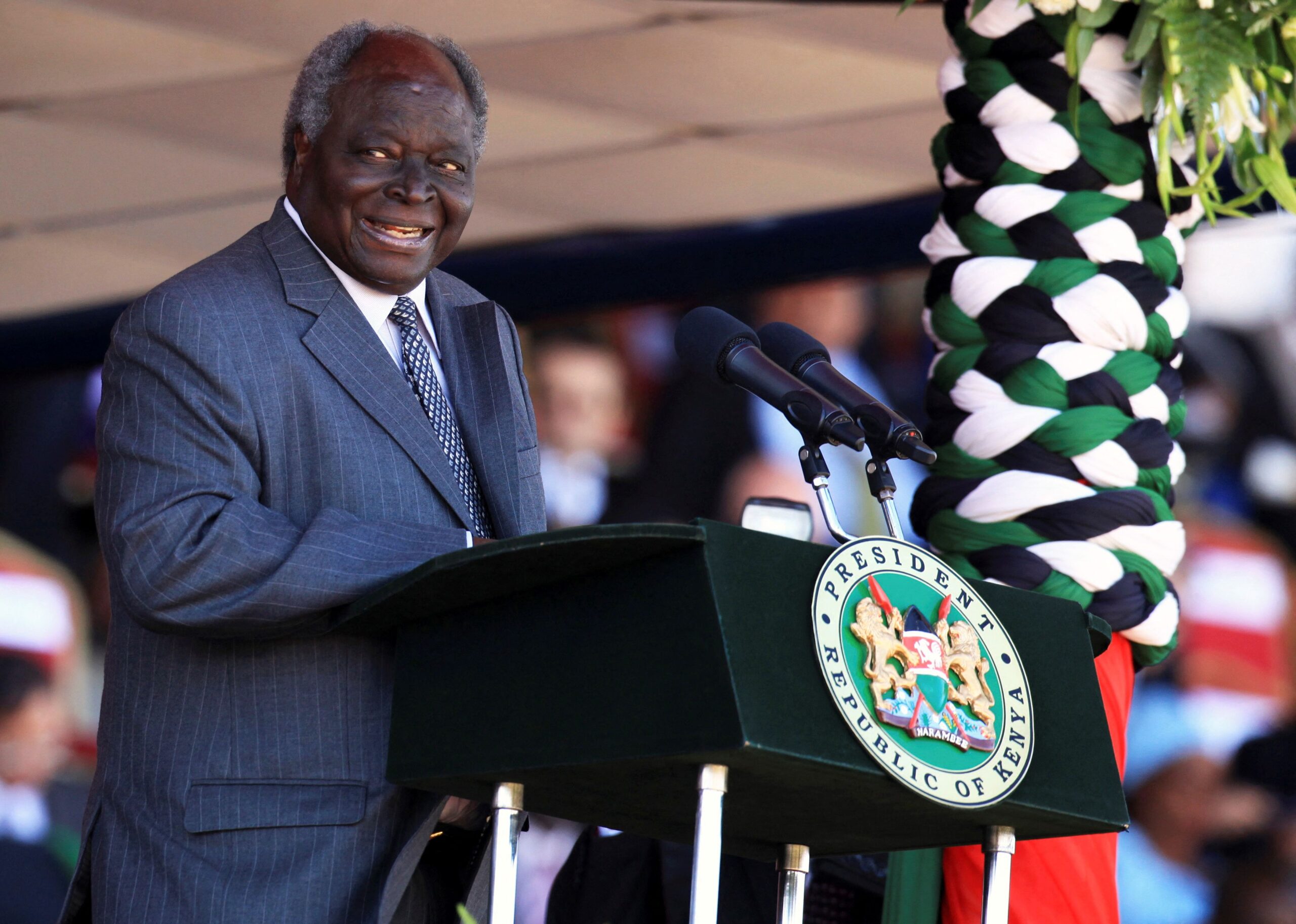
FILE PHOTO: Kenya's President Mwai Kibaki delivers his speech during the national celebrations to mark the 49th Jamhuri Day, the day when Kenya gained independence, at Nyayo National Stadium in Nairobi December 12, 2012. REUTERS/Noor Khamis/File Photo
new generation of voters is disrupting Kenya’s political landscape as the country prepares for the 2027 general elections.
Known as the ‘Kizazi cha Kibaki’—the generation raised under the late President Mwai Kibaki—this group, largely comprising Gen Z and some Millennials, is redefining political engagement in a way that unsettles the nation’s established political heavyweights.
Unlike previous generations, this cohort places little faith in traditional political parties or celebrated leaders. Instead, they demand tangible policies, visible progress, and leadership that genuinely cares for the people—not empty promises.
“We look at leadership records, not tales from the political battles of the ’90s,” says Faith Mwikali, a university student and participant in the July 2024 nationwide protests against the 2024 Finance Bill.
During those demonstrations, Gen Z showcased remarkable organisational skills, harnessing social media platforms such as TikTok, X (Twitter), and Instagram to coordinate, fundraise, and spread unified messages—all without guidance from politicians. Despite attempts by opposition figures to co-opt their movement, the youth stood firm, refusing to be swayed.
They pressured President William Ruto’s government to reject the 2027 Finance Bill and have remained a persistent thorn in his administration’s side, despite facing harsh crackdowns.
Veteran politicians like Raila Odinga, Kalonzo Musyoka, and Rigathi Gachagua are reportedly perplexed by this shift, as their traditional appeal among youth dwindles. “Raila is inconsistent with today’s generation. Sometimes he supports protests, other times he advises youth not to march. To them, he seems like a mediator of the system he once opposed,” says Billy Okea, a Gen Z activist.
The government is not exempt from criticism. Despite Ruto’s ‘bottom-up’ campaign positioning him as a champion for the poor, young Kenyans are frustrated by high taxes, unemployment, and unmet economic promises.
“You can’t lead youth with hope alone. They want results. They feel the pain of daily living costs and will vote accordingly,” explains social analyst Joseph Kisilu.
With ethnic politics and hollow promises losing appeal, the youth demand accountability, economic justice, and civil rights. Political analyst Peter Katana describes Gen Z as “a civic force with the power to change politics from county assembly members to the presidency.”
Some youth groups have already begun voter registration drives, planning to field independent candidates and reject parties dominated by traditional politicians.
“For the first time in Kenya’s history, elections may defy predictable party and ethnic patterns. This generation, nurtured during Kibaki’s era of equal opportunity, quality education, and inclusive growth, challenges political elites accustomed to deceiving voters,” Katana asserts.
He calls Gen Z the “children of Kibaki,” educated and critical thinkers who are hard to manipulate. “Gen Z is a block of voters rejecting tribalism. Anyone ignoring them—from MCAs to the President—will be in for a shock,” he warns.



